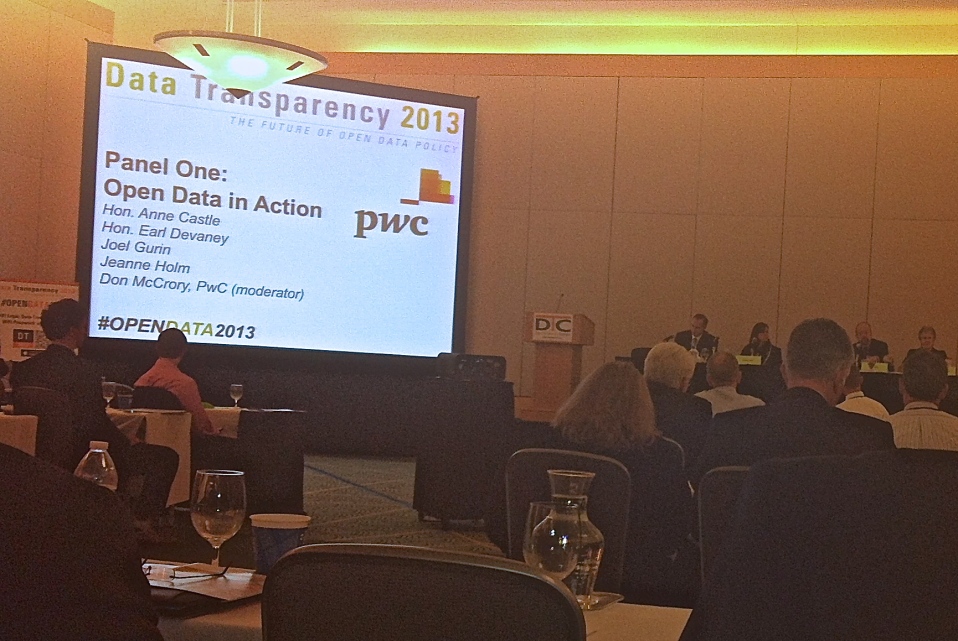Knowledge Management for Development
a global community
What I Learned at Data Transparency 2013
By: Anne Sophie Lambert, Associate Director
Thomas Jefferson once said, “We might hope to see the finances of the Union as clear and intelligible as a merchant’s books, so that every member of Congress and every man of any mind in the Union should be able to comprehend them, to investigate abuses, and consequently to control them.”
Last week, I attended the nation’s first Data Transparency conference, which brought together over 450 federal, technology, nonprofit, and university representatives to build understanding and consensus on this long-standing subject of open data.
The speakers highlighted successes, such as Recovery.gov, which allows citizens to track where money from the Recovery Act is being spent in their neighborhoods; and aspirations, such as the proposed Digital Accountability and Transparency Act (DATA), which would make all government data standardized and public. David Lebryk from the U.S. Department of the Treasury set standards for the quality of the data provided, calling for “reliable, timely, secure, and consumerable data.”
Slyvia M. Burwell, Director of the Office of Management and Budget, declared open data a “national resource and strategic asset” for both the government and citizens. It can reduce wasteful inefficiencies and harmful fraud, saving the U.S. billions of dollars, according to Representative Darrell Issa. It can fuel economic growth and innovation, creating not only new companies but also entire new industries. For example, companies have used open data to help people save money on their energy bills, find the best medical services, and coordinate public transportation with seismic data so that trains stop running when there is risk of a serious earthquake.
In our eyes, the most important role of open data is to empower citizens to hold power-holders accountable. However, third-party companies and organizations can help further this objective by facilitating citizen interaction and encouraging creative use of the data. For example, in the city of Louisville, restaurant inspection information published through Yelp was viewed 80,000 times (as opposed to only 444 views on the government site). Google has also developed a useful set of tools that citizens and governments around the world can use to easily display and analyze data, including several tools particularly designed for crisis response situations.
At the close of the conference, John Wonderlich from the Sunlight Foundation wisely stated, “ To make default to open is not going to happen from a one-time policy but from a stream of decisions over time.” Accountability Lab strives to contribute to this stream of progress and possibilities by supporting the creation of several innovative and locally-owned tools for open data in Nepal and Liberia, including: a Right to Information Toolkit, a chalk-billboard providing civic education, a wiki site crowdsourcing information about higher education and government services, and the Bolaun platform for citizen engagement around accountability issues.
Donate !
***
note if the donate link above does not work for you, click here on donate! and at the bottom of that page click on the donate logo
***
Groups
-
KM4Dev 20 years celebrat…
13 members
-
KM4Dev Core Group
7 members
-
SA-GE - KM4Dev Francopho…
63 members
-
Agenda Knowledge for Dev…
31 members
-
KM4Dev Jobs Centre
345 members

You need to be a member of Knowledge Management for Development to add comments!
Join Knowledge Management for Development